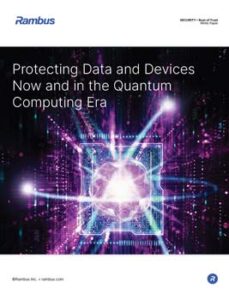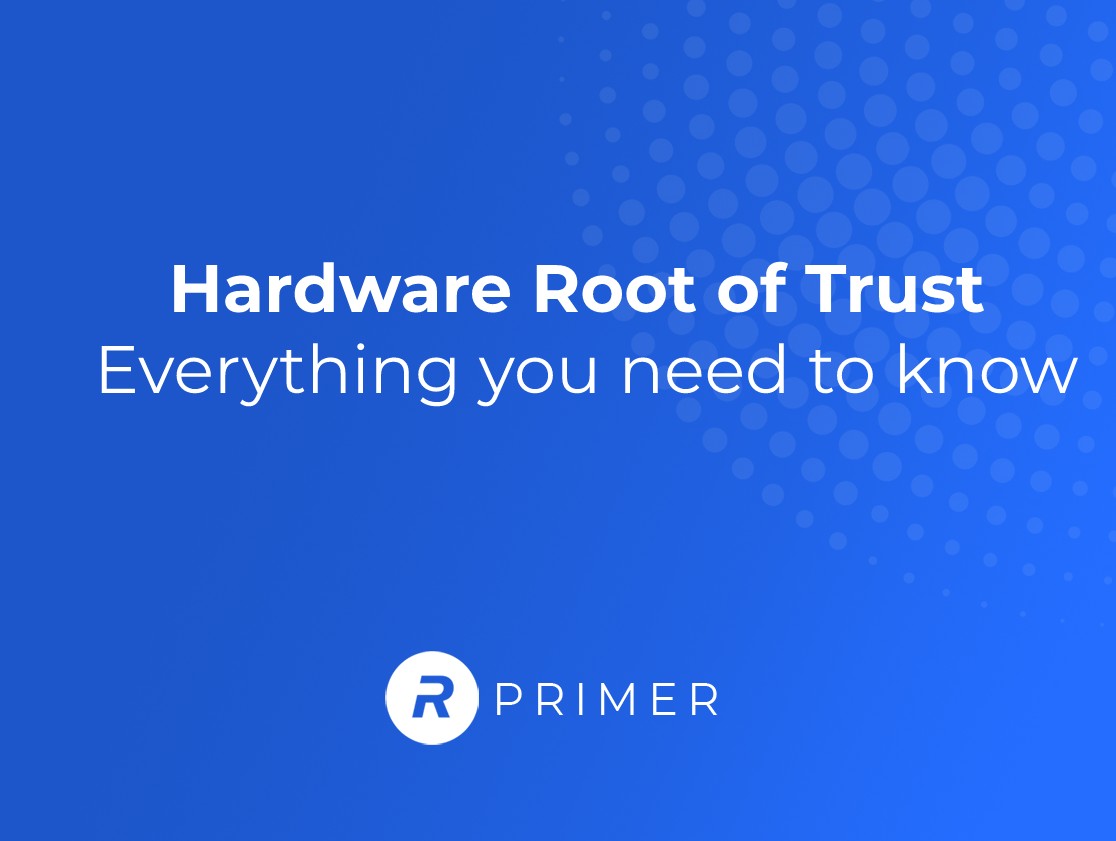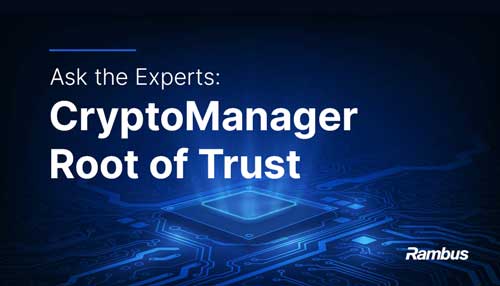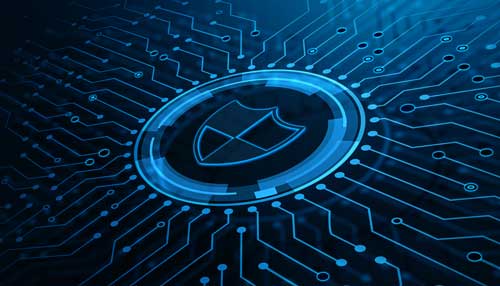Quantum Safe Cryptography IP
Protection against quantum computer attacks using NIST and CNSA algorithms
Home > Security IP > Quantum Safe Cryptography IP
Quantum computers will be able to rapidly break current asymmetric encryption, placing important data and assets at risk. Rambus Quantum Safe IP solutions offer a hardware-level security solution to protect data and hardware against quantum computer attacks using NIST and CNSA selected algorithms.
Rambus Quantum Safe IP products are compliant with the following FIPS standards:
- FIPS 203 ML-KEM: Module-Lattice-Based Key Encapsulation Mechanism Standard, which is based on the CRYSTALS-Kyber mechanism
- FIPS 204 ML-DSA: Module-Lattice-Based Digital Signature Standard, which is based on the CRYSTALS-Dilithium signature scheme
- FIPS 205 SLH-DSA: Stateless Hash-Based Digital Signature Standard, based on the SPHINCS+ signature scheme
The products can be deployed in ASIC, SoC and FPGA implementations for a wide range of applications including data center, AI/ML, defense and other highly secure applications. Products are firmware programmable to allow for updates with evolving quantum-resistant standards.
Selected Rambus products with Quantum Safe Cryptography include:
| Solution | Product Brief | Applications |
|---|---|---|
| QSE-IP-86 | Standalone engine providing Quantum Safe Cryptography acceleration | |
| QSE-IP-86-DPA | Standalone engine providing Quantum Safe Cryptography acceleration and DPA-resistant cryptographic accelerators | |
| CryptoManager RT-634 | Programmable Root of Trust with Quantum Safe Cryptography acceleration | |
| CryptoManager RT-664 | Programmable Root of Trust with Quantum Safe Cryptography acceleration and DPA-resistant & FIA-protected cryptographic accelerators | |
| CryptoManager RT-669 | Programmable Root of Trust with Quantum Safe Cryptography acceleration, DPA-resistant & FIA-protected cryptographic accelerators and Caliptra RoTM | |
| Quantum Safe IPsec Toolkit | Quantum Safe complete IPsec implementation. Fast, scalable and fully compliant IPsec implementation. Used in cloud and virtual deployments, high traffic gateways, and embedded devices. | |
| SHSlib | Stateful hash-based signatures library providing a bare-metal implementation for LMS and XMSS schemes. |
QSE-IP-86 Quantum Safe Engine
The Rambus Quantum Safe Engine (QSE) supports the FIPS 203 ML-KEM and FIPS 204 ML-DSA standards, and also includes SHA-3, SHAKE-128 and SHAKE-256 acceleration. For applications that require additional protection against differential power analysis (DPA) attacks, a DPA version of the QSE is available.
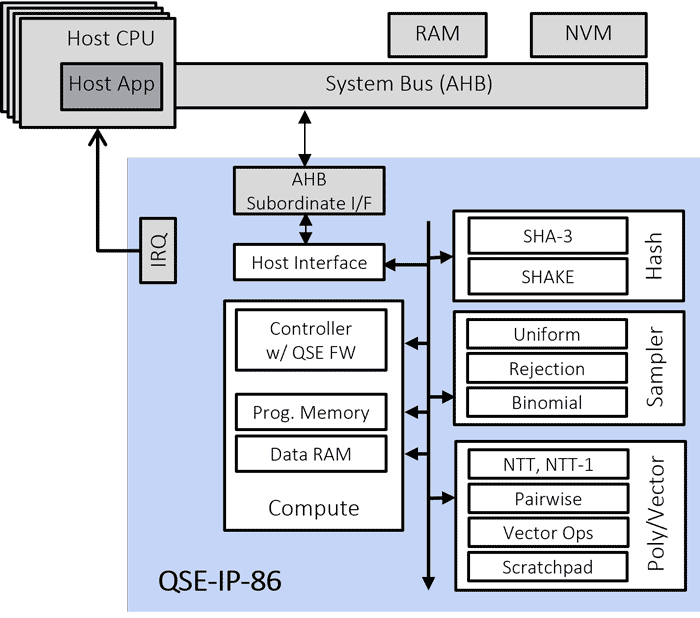
Find out more about the Rambus QSE-IP-86 here.
CryptoManager RT-634, RT-664 and RT-669 Root of Trust Cores with Quantum Safe Cryptography
The CryptoManager RT-6xx Root of Trust cores support the FIPS 203 ML-KEM, and FIPS 204 ML-DSA, and FIPS 205 SLH-DSA standards. These products also support secure boot and firmware verification use cases with the stateful hash-based signature verification methods XMSS (eXtended Merkle Signature Scheme) and LMS (Leighton-Micali Signatures).
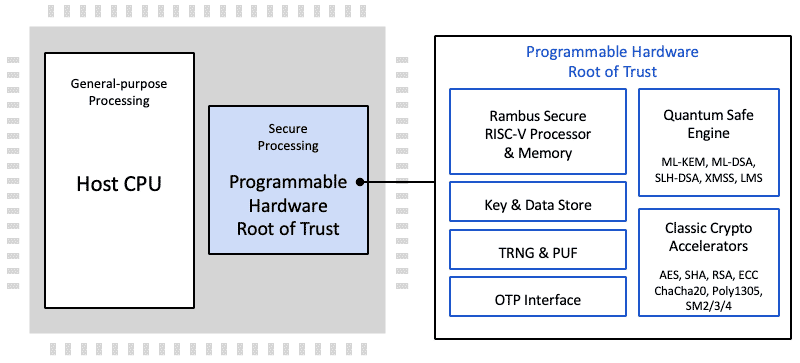
Find out more about the Rambus CryptoManager Root of Trust and Hub cores with Quantum Safe Cryptography including automotive-grade solutions here.
Protecting Data and Devices Now and in the Quantum Computing Era
